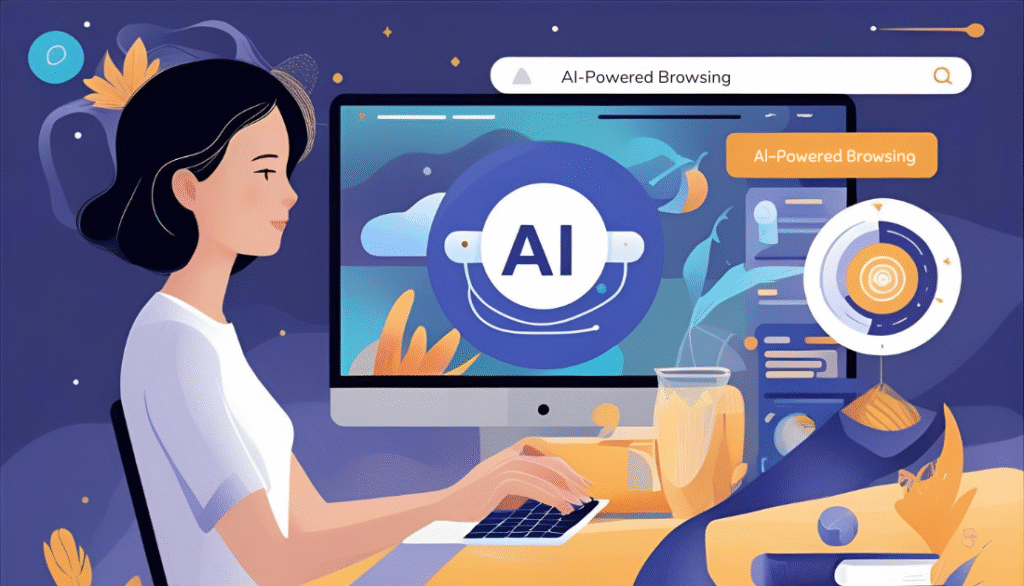AI-enhanced browsers are evolving from passive assistants into tools that can simplify repetitive digital tasks through smarter automation.
Highlights
- Dia Launches Skill Gallery: The Browser Company introduces a curated gallery of AI-powered skills that users can integrate for tasks like 2FA retrieval, smart shopping, and coding.
- Community-Driven Innovation: Dia formalizes prompt sharing by centralizing user-created shortcuts into an accessible, categorized resource.
- Comet Embraces Shortcuts + Natural Language: Perplexity’s upcoming Comet browser will support both prebuilt automations and custom scripting via natural language—no coding required.
- Big Tech Partnerships Incoming: Comet is reportedly in talks with Samsung and Apple to become pre-installed, potentially reaching millions of users rapidly.
- Task Automation Focus: Comet aims to automate repetitive digital actions like booking, research, and tab management, freeing users to focus on higher-level tasks.
- Dia Prioritizes Privacy: Its routing system chooses the best AI for each task while preserving user privacy with encryption and minimal tracking.
- Organic Growth Through Real Use Cases: Features like Dia’s /smart-shopper and /2fa show how community needs shape browser functionality beyond hype.
While these platforms are not yet capable of handling fully autonomous, complex workflows, new features from companies like The Browser Company and Perplexity suggest meaningful progress.
Their latest updates—focusing on skill libraries, reusable prompts, and natural language scripting—signal a move toward more practical, user-driven utility.
Dia Launches Community-Driven Skill Gallery
Dia, the AI browser from The Browser Company, has introduced a curated skill gallery—a collection of prompt-based commands contributed by both the company and its user base.
Currently in version 0.1, the gallery includes categorized shortcuts users can copy and integrate directly into their browser experience.
These skills span a range of everyday use cases, from generating code and retrieving two-factor authentication codes to finding local events or shopping deals.
The update formalizes what was previously a community-led initiative, where prompt-sharing occurred through forums and public threads. Now, users have a centralized resource to discover and adopt repeatable commands with minimal setup.
Comet Prepares Shortcut System
Perplexity, known for its AI search platform, is developed a new browser called Comet, which includes a comparable shortcut system.
CEO Aravind Srinivas recently revealed that Comet will support prebuilt automations for tasks such as organizing tabs, preparing for meetings, or tracking social trends.
Where Comet may stand apart is its support for natural language scripting—allowing users to create custom automations without writing code. This approach resembles tools like Tampermonkey but lowers the technical barrier, enabling broader customization through simple instructions.
Scaling Through OEM Partnerships
In pursuit of mass adoption, Perplexity is reportedly in talks with major device manufacturers, including Samsung and Apple, to pre-install Comet on future hardware.
If successful, this strategy could bring Comet to tens or even hundreds of millions of users by next year, positioning it as a potential alternative to default browsers like Chrome.
AI That Embeds Into Daily Workflows
Early previews of Comet suggest it’s designed to handle time-consuming tasks—such as booking appointments, searching for flights, or placing online orders—while users focus on higher-priority activities.
This shift from passive browsing to proactive assistance could redefine how users interact with their devices.
Dia’s Skills Gallery Highlights Community Contribution
The success of Dia’s new features is rooted in community participation. Users have developed skills like /smart-shopper, /2fa, and others that demonstrate practical, daily value.
This community-centered model offers a blueprint for AI-powered browsers that grow organically based on real user needs.
Balancing Context-Aware Intelligence With Privacy
Dia also incorporates a secure routing system that selects the most appropriate AI model for each task, supports custom UIs per skill, and uses browser cookies to maintain context across sessions.
The platform emphasizes user data protection by prioritizing encryption and minimizing unnecessary data collection.
Toward AI-Centric Browsing Ecosystems
Both Dia and Comet represent a broader vision: transforming browsers from static interfaces into dynamic AI ecosystems.
By blending smart prompts, lightweight automation, and user context, these platforms are laying the groundwork for a more personalized, assistant-like browsing experience.


